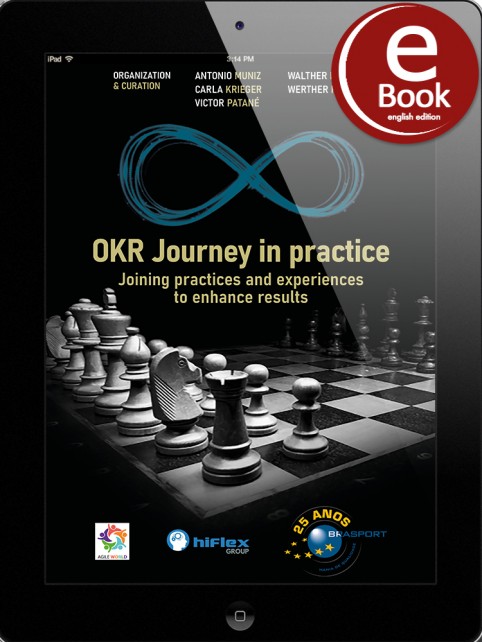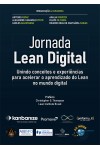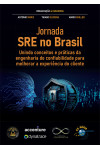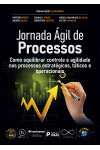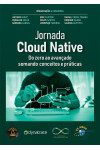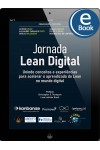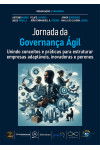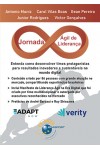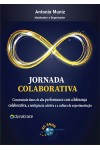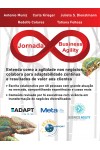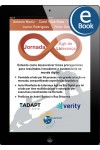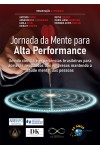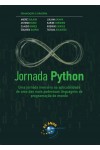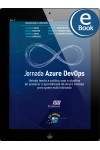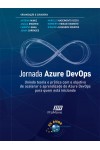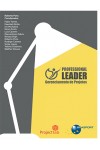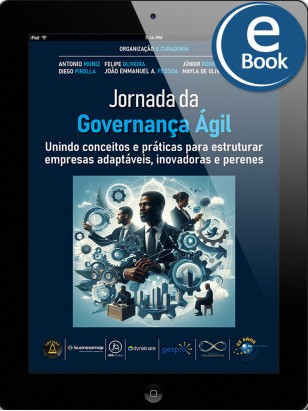eBook: OKR Journey in Practice
- Catálogo: E-books da Brasport
- Modelo:531764
- Categorias
- - e-Books
- - Negócios
- - Gerenciamento de Projetos
- Disponibilidade:Indisponível
- R$ 51,00
Venda de e-book Compre na Amazon Compre no Google Play
eBook: OKR Journey in Practice: Joining practices and experiences to enhance results
Learn about the challenges and best practices in a journey of OKR implementation.
“In this work, another goal of this fantastic initiative called Jornada Colaborativa, we have a deepening of the concepts, context-based applications and, mainly, real market cases, which will surely help you in this VUCA/BANI world where short-term objectives are increasingly necessary.” - Vitor Massari, preface
A Jornada Colaborativa
Together we are smarter and more lives are transformed!
Once upon a time there was a university professor who dreamed of releasing a book when he finished his master’s degree in 2007.
After some ideas for publication on topics such as Microsoft certification, project management and service management, the dream began to be fulfilled in 2017 with the book “Jornada DevOps” (DevOps Journey), but some obstacles stopped its evolution after the definition of the final structure for the official EXIN certification and the writing of three chapters.
In September 2018, during a lecture at PUC Minas, a click emerged: “would other people passionate about DevOps help with collaborative writing?” Dozens of people accepted the invitation and the book was released to 350 people on June 6, 2019 at the SulAmérica Convention Center in Rio de Janeiro, after intense coordinated work with people from several cities who had never worked together before.
After this successful experience with many learning experiences, the team’s escalation created great friendships, new initiatives and a donation of R$ 251,500.00 to institutions, with 11 books launched.
We dream of transforming more lives with collective intelligence and the support of friendly companies...
Antonio Muniz
Founder of Jornada Colaborativa, organization and curation of 20 books.
Carla Krieger
Organizing team leader for the book, curating and technical review.
Co-authors
Adriana Brandão
Alessandro Seixas
Antonio Muniz
Bruna Milare
Bruno Tadeu França
Bruno Tarsis
Bruno Urakawa
Carla Krieger
Carlos Eduardo R. Cruz
Dani Dias
Daniel Moro
Eriveldo Madureira
Fabio Cruz
Fernando Fernandes
Flavia Silva
Francisco Medeiros
Gabriel Francisco Pistillo Fernandes
Hermann Rego
Jamile Marques
Júnior Rodrigues
Leandro Mattoso
Leonardo Santos
Luciana Moreira
Luiz Eduardo Labriola
Márcia Maximiano
Marcos Afonso Dias
Maria Angélica Castellani
Maria Heloiza Rodrigues Magrin
Marília Maragno
Marlon Bastida
Pedro Signorelli
Queli Silva
Rafael Vilela
Renata de Podestá Gaspar
Roberta Altermann
Rodrigo do Vale
Ronaldo Menezes
Victor Patané
Walther Krause
Werther Krause
Yuri Bilinski Escarião
Yussif Barcelos Dutra
| E-ISBN | 9786588431764 |
| Edição | 1 |
| Formato | ePUB |
| Idioma | Inglês |
| Lançamento | 20 de setembro de 2022 |
| Páginas | 220 |
| Ano | 2022 |
| Sumário | PART I. ORIGIN AND PURPOSE OF OKR Where it all began… How to set an OKR? 2. Why use OKRs? (Walther Krause) What are the OKR differentiators? The OKR structure Examples of an OKR OKRs are aspirational and seek engagement Why companies prefer OKR Conclusion 3. OKR and agility (Yuri Bilinski Escarião/Gabriel Francisco Pistillo Fernandes) 4. OKRs in digital transformation (Maria Heloiza Rodrigues Magrin/Leonardo Santos) Purpose Objective Key results 5. Understanding metrics and indicators (Marília Maragno) Balanced Scorecard (BSC) Relationship between BSC and OKR Metrics or indicators Key Performance Indicators (KPIs) Monitoring KPIs Marketing metrics Vanity metrics Relationship between KPIs and OKRs Goal plan x metrics plan Planning and follow-up PART II. HOW TO PREPARE FOR THE BEGINNING OF THE JOURNEY 6. Planning the deployment of OKRs (Luiz Eduardo Labriola) Objective (O) Key Results (KR) Main characteristics of a good OKR Implementing OKRs in your company 1. Adapt the methodology to your context and needs 2. Start small and in stages 3. Divide objectives into top-down and bottom-up 4. Define a purpose with clear and specific goals 5. Define short cycles and the definition cadence for the next OKR 6. Have a leader and multipliers 7. Make OKRs in plain sight 8. Don’t confuse efforts and results 7. OKR Sprint (Carla Krieger/Renata de Podestá Gaspar) Strategic planning 8. Boosting culture and engagement (Bruno Urakawa) Engagement is necessary! Are we engaged? Adjusted and engaged in culture How to generate engagement with OKRs? 1. Translate the strategic path 2. Embody the values 3. Influence positively 4. Recognize the differences 5. Empower your talents 9. Autonomy in OKRs (Jamile Marques) 10. Understanding the company context (Fábio Cruz/Luciana Moreira) Analyzing the company context 11. Customer Focus: OKRs and BPM (Rafael Vilela) PART III. HOW TO APPLY AND WHAT NOT TO DO 12. Creating OKRs (Ronaldo Menezes/Queli Silva) What to consider before you start writing your OKRs? How to write good objectives? How to write good key results? Hot to write good initiatives? What is the difference between a KR and a KPI? How to calculate the progress of your OKRs? (based on the IKAR method) Good check-in meetings 13. Creating alignment between teams (Marcos Afonso Dias/Yussif Barcelos Dutra) Putting strategy into practice Tactical OKRs and teams 14. Facilitation dynamics and techniques (Maria Heloiza Rodrigues Magrin/Francisco Medeiros/Dani Dias) The first step is to have an inspiring purpose The second step is to transform this purpose into a strategic objective The third step is the decomposition of the strategic objective into tactical objectives The fourth step is the decomposition of each tactical objective into key results Conclusion 15. How to work OKRs and goals in the organization (Marília Maragno/Fernando Fernandes) Organizational goals OKRs Traditional goals vs OKRs Individual performance vs OKRs Remuneration risks linked to OKR How to avoid the risks 16. Enabling and training is essential (Fernando Fernandes/Bruno Tarsis) The KSA for an OKR culture And why empowering and training is essential? 17. Main failures in the implementation of OKRs (Bruna Milare/Queli Silva/Bruno Tadeu França) Define your OKRs well Set cadences Define roles and responsibilities Train your collaborators More failures in implementing OKRs 18. OKRs don’t match command and control (Júnior Rodrigues) Introduction The command and control culture Leadership and empowerment in decision making OKRs to lead strategically in an agile way Conclusion 19. OKRs for personal goals (Francisco Medeiros/Alessandro Seixas) PART IV. MANAGING WITH OKR 20. The OKR lifecycle (Victor Patané) 21. How to know if we are close to the objective (Adriana Brandão) 22. Keeping OKRs alive (Flavia Silva) 1. Follow-up of results 2. Breakdown of OKRs into initiatives/tasks 3. Working with key performance indicators (KPI) 4. Be open to adaptations 5. Have a leader and some champions 6. Team recognition 7. Stimulate continuous improvement 23. The engagement power of OKR (Dani Dias) But what does engagement mean? And what aspects are evaluated for this rating on engagement? Actions that favor the engagement of people at work 1. Having a well-defined, clear and transparent business strategy for employees 2. Having clear objectives and goals to achieve the strategy, knowing where you are and where you want to go 3. Involving the teams, stimulating the process of joint construction to achieve results 4. Strengthening the purpose of the activity performed by each employee 5. Making it clear what is expected of the team through continuous feedback 6. Having an individual development plan with learning opportunity An OKR culture and engagement 24. OKR at all levels (Bruno Tadeu França) What are OKR levels? And how to define them at company levels? Enterprise-level OKRs Department level OKRs Cross-functional team-level OKRs Individual OKRs Now, what is the best practice? 25. The OKR leader’s competencies in managing goals and results (Adriana Brandão) 26. Market approaches (Roberta Altermann) 27. JornadaCast Cases (Carla Krieger) APPENDICES Appendix A. FAQ Appendix B. Book experiments (Carla Krieger) References Dedication and acknowledgments About the authors and curators |
Etiquetas: OKR Journey in Practice, OKR, Journey, Journey in Practice, Jornada Colaborativa, Antonio Muniz, Carla Krieger, Adriana Brandão, Alessandro Seixas, Bruna Milare, Bruno Tadeu França, Bruno Tarsis, Bruno Urakawa, Carlos Eduardo R. Cruz, Dani Dias, Daniel Moro, Eriveldo Madureira, Fabio Cruz, Fernando Fernandes, Flavia Silva, Francisco Medeiros, Gabriel Francisco Pistillo Fernandes, Hermann Rego, Jamile Marques, Júnior Rodrigues, Leandro Mattoso, Leonardo Santos, Luciana Moreira, Luiz Eduardo Labriola, Márcia Maximiano, Marcos Afonso Dias, Maria Angélica Castellani, Maria Heloiza Rodrigues Magrin, Marília Maragno, Marlon Bastida, Pedro Signorelli, Queli Silva, Rafael Vilela, Renata de Podestá Gaspar, Roberta Altermann, Rodrigo do Vale, Ronaldo Menezes, Victor Patané, Walther Krause, Werther Krause, Yuri Bilinski Escarião, Yussif Barcelos Dutra


